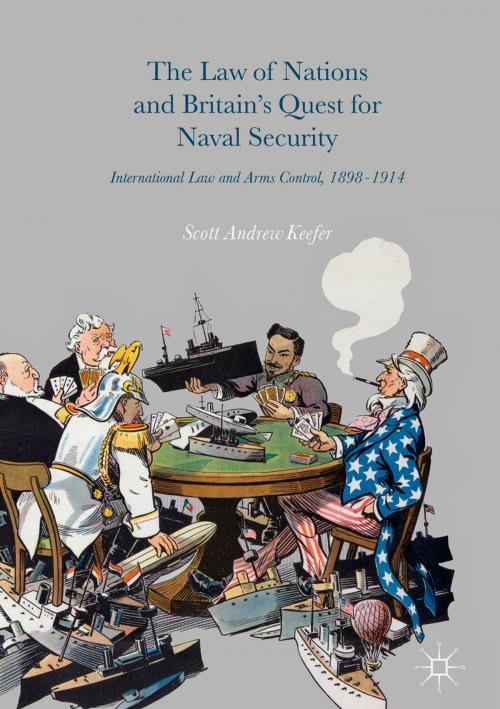The Law of Nations and Britain’s Quest for Naval Security
International Law and Arms Control, 1898–1914
Nonfiction, History, European General, British| Author: | Scott Andrew Keefer | ISBN: | 9783319396453 |
| Publisher: | Springer International Publishing | Publication: | November 13, 2016 |
| Imprint: | Palgrave Macmillan | Language: | English |
| Author: | Scott Andrew Keefer |
| ISBN: | 9783319396453 |
| Publisher: | Springer International Publishing |
| Publication: | November 13, 2016 |
| Imprint: | Palgrave Macmillan |
| Language: | English |
As the centenary of the Treaty of Versailles approaches, this book presents the pre-1914 precursors to the interwar naval arms treaties arising from the peace of 1919, providing a fresh perspective on arms control efforts through an interdisciplinary approach. Interweaving historical investigation with legal analysis, Scott Keefer traces the British role in the development of naval arms control, outlining the pragmatic Foreign Office approaches towards international law. By emphasizing what was possible within the existing legal system rather than attempting to create radically powerful international institutions, statesmen crafted treaties to exploit the unique pace of naval construction. Utilizing previously-overlooked archival resources, this book investigates how the great powers exploited treaties as elements of national security strategies. The result is a fuller analysis of the Hague Peace Conferences, Anglo-German discussions, and lesser known regional agreements from the American Great Lakes to South America, and a richer exploration of pre-1914 diplomacy, providing insights into how a past generation perceived questions of war and defence.
As the centenary of the Treaty of Versailles approaches, this book presents the pre-1914 precursors to the interwar naval arms treaties arising from the peace of 1919, providing a fresh perspective on arms control efforts through an interdisciplinary approach. Interweaving historical investigation with legal analysis, Scott Keefer traces the British role in the development of naval arms control, outlining the pragmatic Foreign Office approaches towards international law. By emphasizing what was possible within the existing legal system rather than attempting to create radically powerful international institutions, statesmen crafted treaties to exploit the unique pace of naval construction. Utilizing previously-overlooked archival resources, this book investigates how the great powers exploited treaties as elements of national security strategies. The result is a fuller analysis of the Hague Peace Conferences, Anglo-German discussions, and lesser known regional agreements from the American Great Lakes to South America, and a richer exploration of pre-1914 diplomacy, providing insights into how a past generation perceived questions of war and defence.















